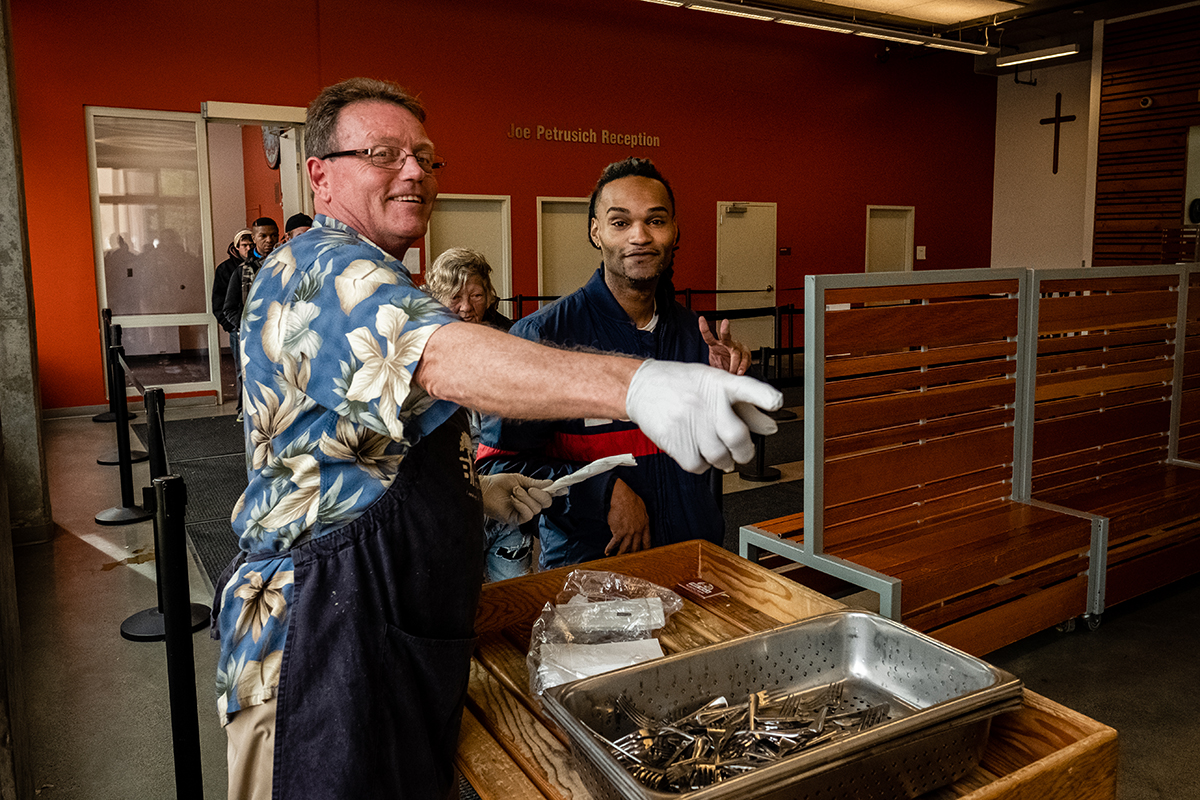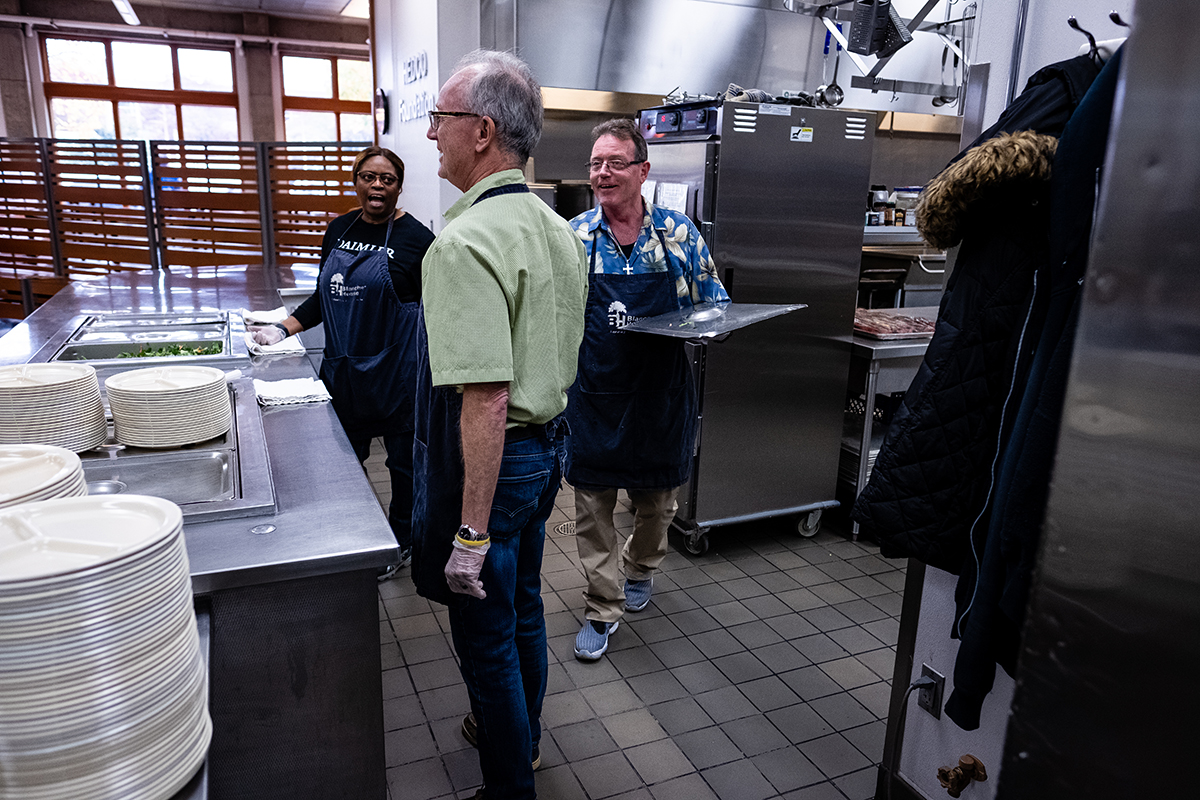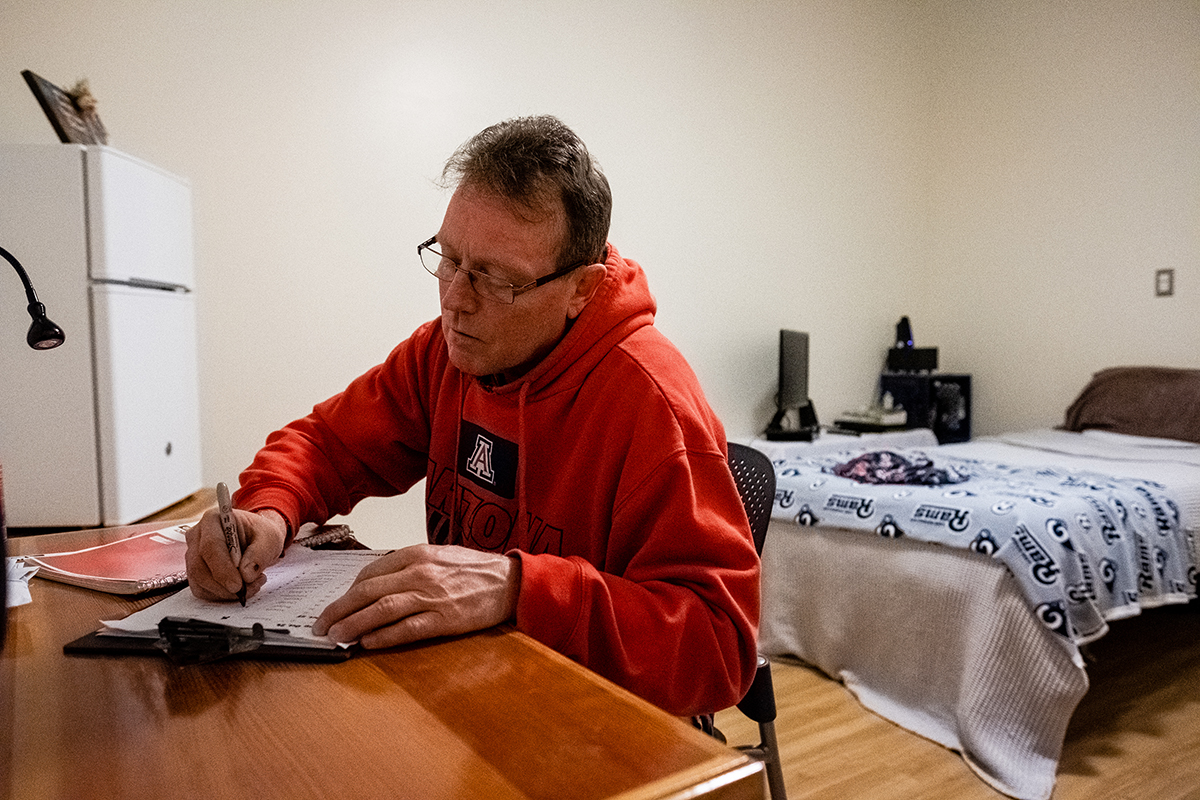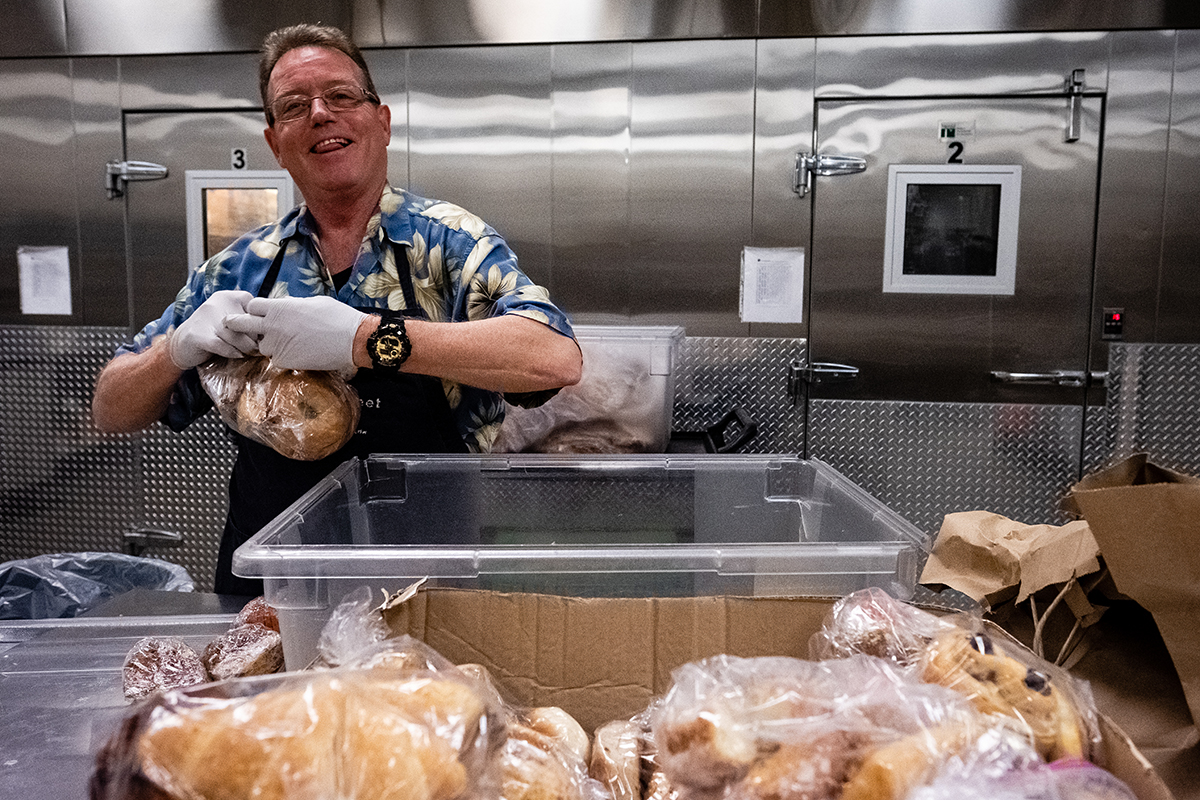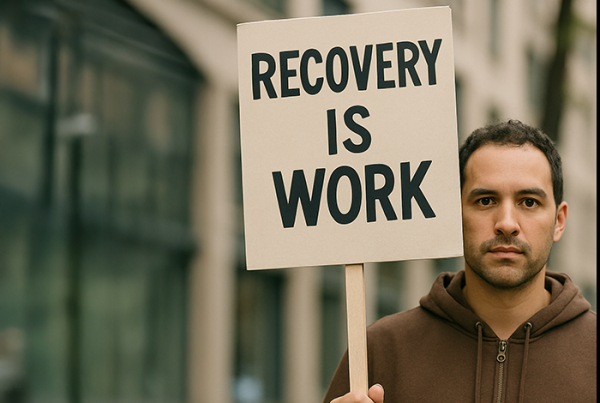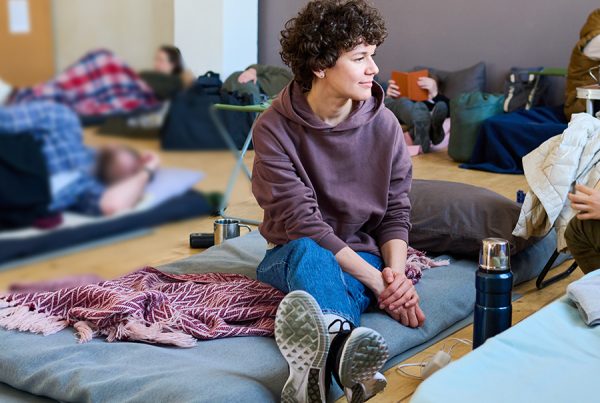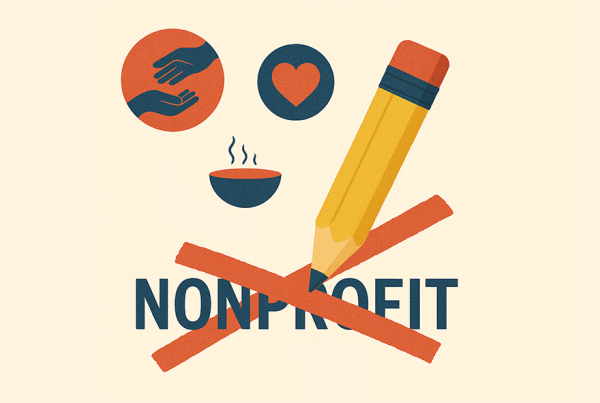If you have visited our café recently, you will notice there are a few changes that make the room feel even more welcoming. Decorative pumpkins line our windows, soy sauce packets are put on the table, and guests who knock on our windows after meal service receive a sandwich brought out to them. These little touches have a positive impact on our guests and they are all thanks to cafe supervisor and Blanchet House resident Curtiss Goodwin.
“It’s hard for me to see things go to waste when it could benefit someone, like a simple little thing like soy sauce packets,” Curtiss says.
Curtiss’s journey to Blanchet began four years ago, while he was experiencing homelessness and sleeping on the MAX. It was a tumultuous time in his life.
“I had an alcohol problem. I had sisters and family that were very supportive, but they had had enough. So did I,” Curtiss said. “I felt that I really needed a clean and sober living space, and I wanted God in my life.”
Riding the MAX one day, Curtiss ran into the former resident manager at Blanchet, David Greenberg. He told Curtiss about the residential housing program and set him up with an interview. The rest is history.
Curtiss stayed with Blanchet for a year and a half working as the floor supervisor. He transferred to a managerial position with Rite Aid and a new apartment. The job proved to be stressful, and old demons resurfaced.
“I believe what happened was I wasn’t going to church to celebrate recovery, I would just work all the time then go home. I started drinking at home, then I started drinking at work,” he said. He eventually lost his job and reached out to our case manager, Kristi. He reentered the program in May of this year.
Leaving Blanchet can be difficult. Men go from a supportive and structured environment to being alone. Curtiss found himself feeling isolated and this led to his relapse. Now back at Blanchet, things couldn’t be more different.
“I get a lot of satisfaction out of what I’m doing here. I do more than what is asked of me. I can relate to the other men working on sobriety. I can be an example and learn from them.”
Curtiss goes to church with his mom every Sunday and then brunch afterward. His daughter regularly visits and even volunteers serving meals. There is no longer the same sense of shame and isolation that drove him away from his support system. This is mainly due to the fulfillment Curtiss gets from excelling at his job.
“I get a lot of satisfaction out of what I’m doing here. I do more than what is asked of me. I can relate to the other men working on sobriety. I can be an example and learn from them. I know there are a lot of different personalities and work ethics. I don’t put people down when they’re not doing a great job. I work with them. That makes me feel good.”
For the future, Curtiss hopes to get a job where he can continue to serve this population. But for now he says, “I feel I’m doing what God’s put me here to do. I was led here to help others.”
Photos by Eric Elmore.
Written by Brittany Brock. Brock is the Volunteer Coordinator at Blanchet House and a Jesuit Volunteer with AmeriCorps. You can sign up to volunteer at www.BlanchetHouse.org/Volunteer.














